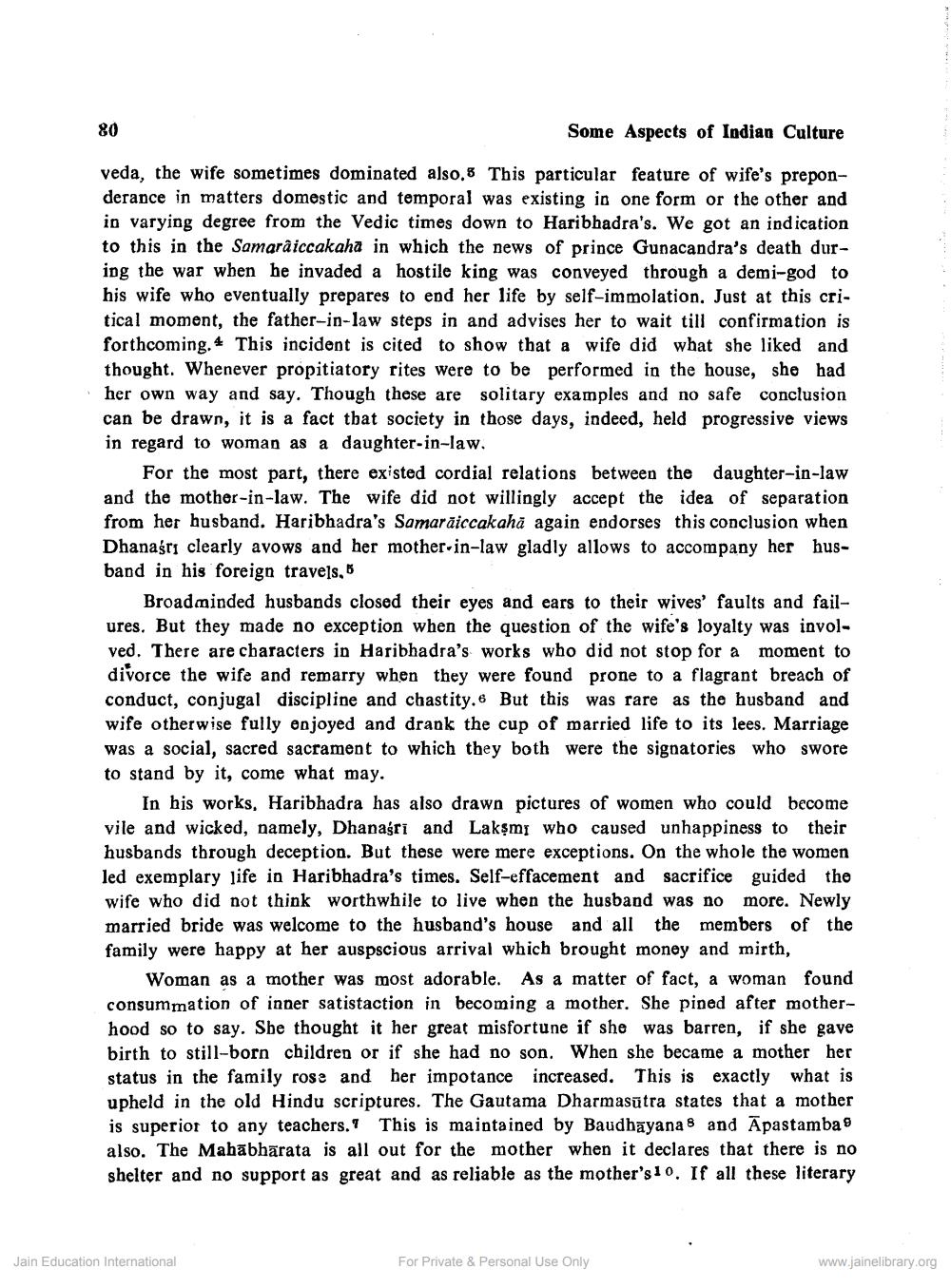________________
80
Some Aspects of Indian Culture
veda, the wife sometimes dominated also. 8 This particular feature of wife's preponderance in matters domestic and temporal was existing in one form or the other and in varying degree from the Vedic times down to Haribhadra's. We got an indication to this in the Samarâiccakaha in which the news of prince Gunacandra's death during the war when he invaded a hostile king was conveyed through a demi-god to his wife who eventually prepares to end her life by self-immolation. Just at this critical moment, the father-in-law steps in and advises her to wait till confirmation is forthcoming. 4 This incident is cited to show that a wife did what she liked and thought. Whenever propitiatory rites were to be performed in the house, she had her own way and say. Though these are solitary examples and no safe conclusion can be drawn, it is a fact that society in those days, indeed, held progressive views in regard to woman as a daughter-in-law.
For the most part, there existed cordial relations between the daughter-in-law and the mother-in-law. The wife did not willingly accept the idea of separation from her husband. Haribhadra's Samarāiccakahā again endorses this conclusion when Dhanasri clearly avows and her mother-in-law gladly allows to accompany her husband in his foreign travels,
Broadminded husbands closed their eyes and ears to their wives' faults and failures. But they made no exception when the question of the wife's loyalty was involved. There are characters in Haribhadra's works who did not stop for a moment to divorce the wife and remarry when they were found prone to a flagrant breach of conduct, conjugal discipline and chastity.. But this was rare as the husband and wife otherwise fully enjoyed and drank the cup of married life to its lees. Marriage was a social, sacred sacrament to which they both were the signatories who swore to stand by it, come what may.
In his works, Haribhadra has also drawn pictures of women who could become vile and wicked, namely, Dhanasri and Lakşmi who caused unhappiness to their husbands through deception. But these were mere exceptions. On the whole the women led exemplary life in Haribhadra's times. Self-effacement and sacrifice guided the wife who did not think worthwhile to live when the husband was no more. Newly married bride was welcome to the husband's house and all the members of the family were happy at her auspscious arrival which brought money and mirth,
Woman as a mother was most adorable. As a matter of fact, a woman found consummation of inner satistaction in becoming a mother. She pined after motherhood so to say. She thought it her great misfortune if she was barren, if she gave birth to still-born children or if she had no son. When she became a mother her status in the family rose and her impotance increased. This is exactly what is upheld in the old Hindu scriptures. The Gautama Dharmasūtra states that a mother is superior to any teachers. This is maintained by Baudhāyana 8 and Āpastamba 9 also. The Mahābhārata is all out for the mother when it declares that there is no shelter and no support as great and as reliable as the mother's 10. If all these literary
Jain Education International
For Private & Personal Use Only
www.jainelibrary.org




